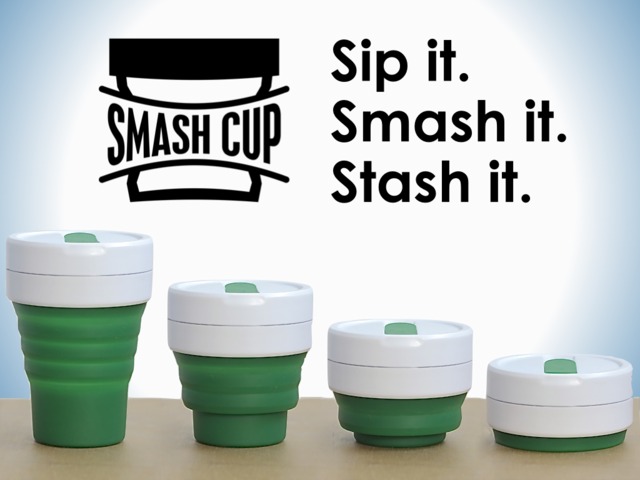Business
Creator Says Collapsible Cup Curbs Coffee Waste
Product designer Ben Melinger thinks he can cut the number of disposable coffee cups dumped in landfills with his recently created Smash Cup, which, when collapsed, fits into a shirt pocket.
Melinger, 34, came up with the idea for Smash Cup after his friends complained about the excess of disposable coffee cups and their impact on the environment. Those friends also complained that ceramic cups and thermoses were too bulky to carry around.
“I would like to be a green person. But if it doesn’t make my life easier, or if it makes it more expensive, I’m not going to do it.” said Melinger, an engineer until he quit that profession about four years ago to make and sell his own products.
Melinger is trying to fund production of Smash Cup through a Kickstarter crowd-funding campaign.
Simon Fraser University is among institutions reporting that 500 billion cups of coffee are sold each day worldwide.
Much of that coffee is served up in petroleum-based Styrofoam, whose use was recently banned in Washington, D.C., one of the latest cities to outlaw use of that disposable product.
Some mainly paper coffee cups are lined with polyethylene, also a plastic. Some researchers have concluded that some plastics may cause certain cancers and that is releases environmental toxins.
Also, “some plastic materials … won’t fully biodegrade … [and they] can be persistent in the environment for hundreds of years,” Krista Thyberg, a State University of New York at Stony Brook Department of Technology & Society research assistant, told The Spectrum.
The U.S. Environmental Protection Agency (EPA) has reported that 25 billion cups made of Styrofoam cups are thrown out each year in the United States. “Even 500 years from now, the foam coffee cup you used this morning will be sitting in a landfill,” according to the EPA.
As Smash Cup creator Melinger tries to reduce the number of such cups that end up in the local dump, he is planning to roll out his first collapsible, reusable containers in October 2014, he said.
As this The Spectrum article posted, his Kickstarter campaign had raised about $73,000. It set a fundraising goal of $10,000. The campaign is scheduled to end on Aug. 7, 2014.
Melinger said SGS, based in Geneva, Switzerland, has tested the quality and safety of Smash Cup. He also said it is free of bisphenol A and phthalates, which some researchers have concluded may negatively affect health, including the development of unborn babies. According to the Environment and Human Health, Inc., exposure to BPA may raise the risks of developing breast and prostate cancers and becoming obese.
Melinger’s cup consists of three parts that are designed to be easy to assemble and wash. Silicone, the main material of the cup, is rubbery and soft, making it easier to store and carry.
Melinger’s potential product comes at a time when coffee sellers face challenges in recycling coffee cups. Starbucks has stated that it has not met most of its cup recycling goals.
Business Insider has reported that the difficulties faced by Starbucks and other coffee sellers are partly related to the relatively high costs of removing plastic from their paper cups so they can be recycled.
Melinger said he hopes coffee drinkers will view his product as a way to lessen the number of unrecyclable coffee cups, then buy Smash Cup.
“I hope that [Smash Cup] reduces the waste that people create … and that it … stop[s] companies from purchasing disposable cups,” he said.


